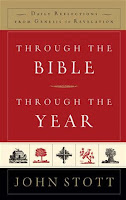
The Parable of
Lostness – Luke 15 (part two)
Jesus tells “this” parable in response to disgruntled
religious leaders who disapprove of Jesus’ habits of hospitality (Luke
15:1-2). This is the third of four parables
in the travelogue that deals with the subject.
In this particular parable, Jesus’ table fellowship with the lost is
compared to a shepherd pursuing lost sheep,
to a woman seeking a lost coin and a Father waiting and looking for a
lost son. This third object of Lostness
is the climax of the parable. With each
movement the object lost is both more precious and the risks are higher. The shepherd loses one in a hundred
sheep. The woman loses one in ten
coins. The Father loses one in two
sons. With each movement of the parable
we must remember that Jesus is indirectly defending his table fellowship. In effect, he is saying “this is my
justification for eating with tax collector’s and sinners.”
The first two movements are designed to get “buy in.” A good shepherd and as wise woman are common
motifs in scriptures and common features in Jewish society. When Jesus tells the story of two brothers –
a younger that rebels and an older that stays obedient at home – he is likewise
drawing a deep biblical tradition. The Bible
– especially Genesis – is chock full of sibling rivalries between younger and
older brothers. And this is the story
Jesus’ tells.
In brief, the younger brother takes the inheritance, not
entirely legally, and departs for the “far country.” Haven basically disowned his family; he does
not have the wherewithal to remain true to himself. Jesus paints the most outrageous situation
for a Jewish boy and then places this fictional creation in it. He has descended to slopping hogs. When the audience can’t imagine it getting
worse, he ends with this description of his descent: “And he was longing to be
fed with the pods that the pigs ate, and no one gave him anything”
(15:16).
At this point, Jesus tells us that the boy “comes to
himself” and decides to return home to be a servant in his father’s house. At this point, Jesus describes, with great
detail, the reconciliation that ensues.
The father seeing the son at great distance and overcome with compassion
“ran and embraced him and kissed him.”
These three verbs in sequence occur only one other time in
scripture. They appear in another story
of reconciliation involving a younger and older brother and their father. We know that Jesus is a master story
teller. What we are learning is that the
story he tells is invariably Israel’s story.
Jesus’ retelling Israel her story is designed to show her how Jesus
himself is fulfilling this story in his own mission. This parable of the two sons and waiting
father happens to be Israel’s founding story.
It is the story where Jacob’s name is changed to Israel (“he who
struggles with God”). The main
difference in this founding story is that it is the older brother who runs to
the prodigal who has taken his inheritance and “embraced him and fell on his
neck and kissed him and they wept” (Gen. 33:4). See chart:
Luke 15:20 – Role of Father/Jesus/Older Son Genesis
33:4 – Role of Esau/Older Son
Ran
|
Ran to meet him
|
and embraced him
|
and embraced him
|
and kissed him
|
and fell on his neck and kissed him
|
and they wept
|
In Jesus’ retelling of Israel’s founding story the altered
details are very important. The older
brother is the agent of reconciliation in the original story not the
Father. The younger brother is not
industrious like Jacob is in the original story and he is an altogether less
endearing character. Why does Jesus
alter these details in the retelling? He
is retelling to the audience identified in 15:1-2 – a bunch of “older brothers”
– who disapprove of Jesus’ embracing the younger brothers who have wasted the
themselves in the “far country” (15:13).
In addition, Jesus is identifying himself with the Father in the
parable. First, because he is the one actually
having table fellowship with “tax collectors and sinners” but also because it
is his purpose to be about his “father’s business” (Luke 2:49). When challenged by the religious leaders for
welcoming tax collectors and sinners, Jesus answers indirectly through this
founding story subtext:
this is what older sons’ should do. They forgive and reconcile with estranged
brothers. And thank God Esau treated
Jacob this way or none of us would be here today. We are a nation of “younger brothers” who
went out to the “far country” under a cloud but when we returned home we were
forgiven by the older brother we sinned against. Israel is nation of “older
brothers” who have forgotten their origins as “younger brothers.” If you had not forgotten your origins you
would be welcoming these sinners just as I am – for they are your estranged
brothers.
No comments:
Post a Comment